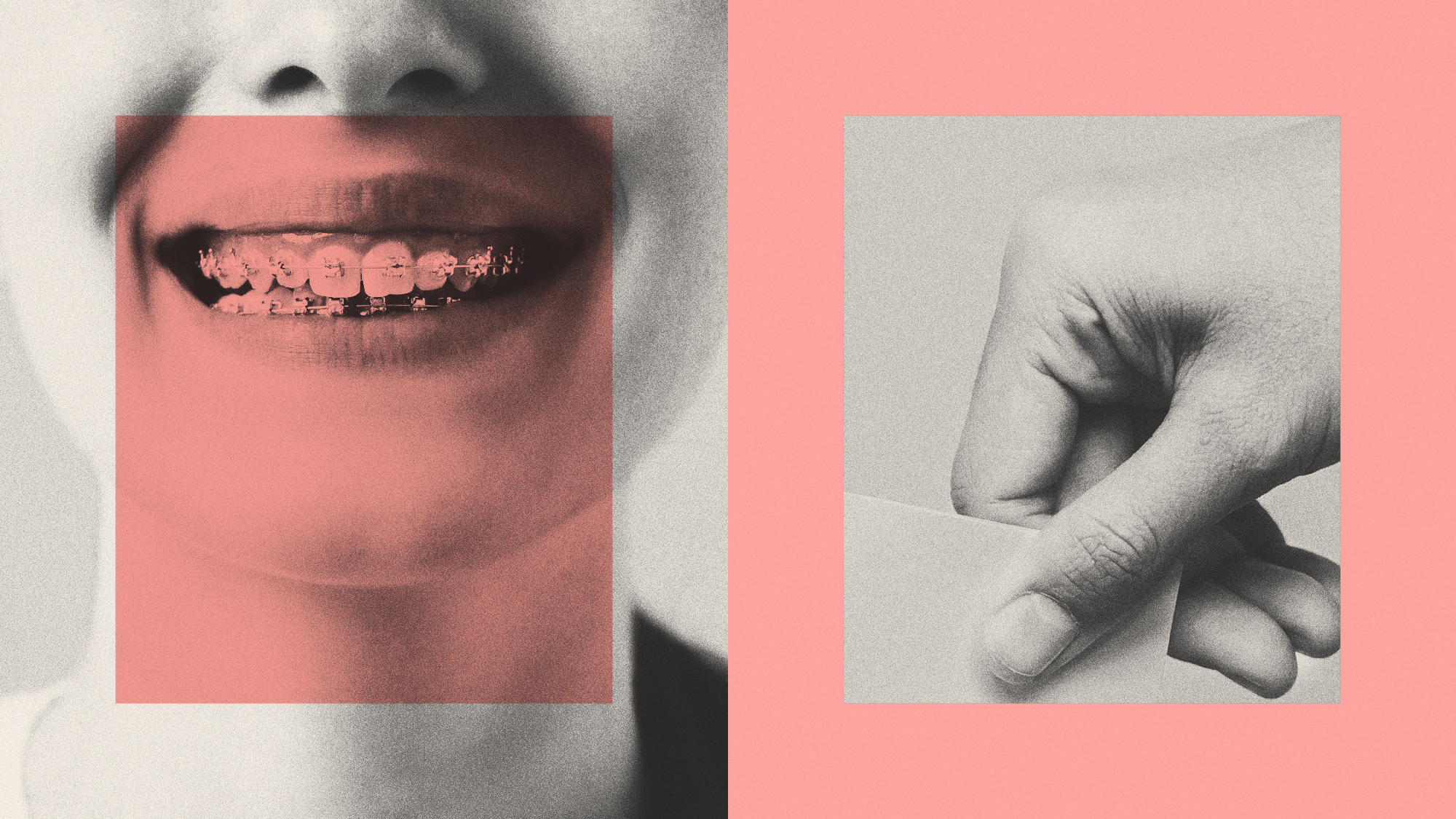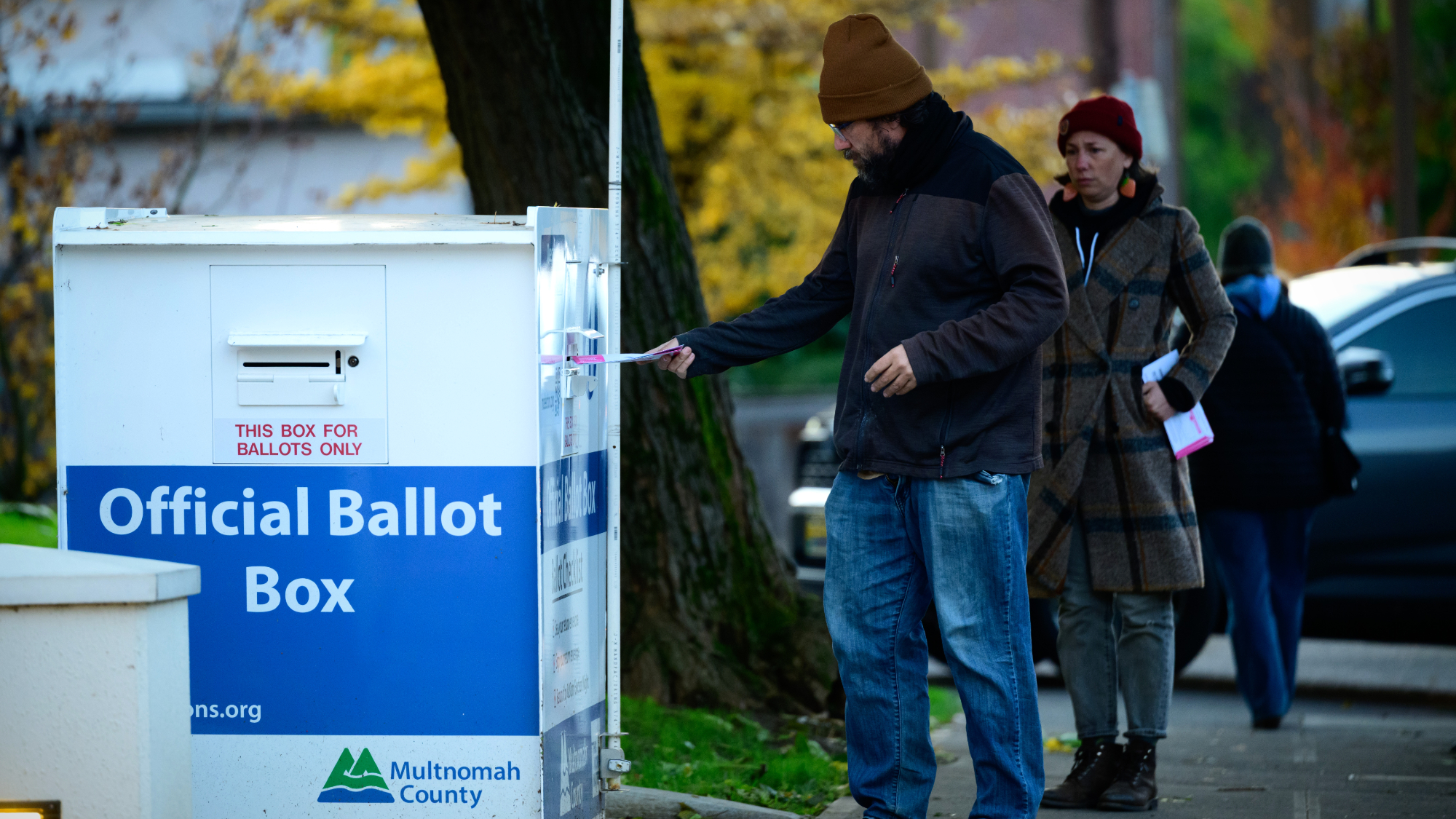Who stands to gain – and lose – from 16-year-old voters?
Many assume Labour will benefit but move could 'backfire' if Greens, a new hard-left party or Reform continue to pick up momentum

A free daily email with the biggest news stories of the day – and the best features from TheWeek.com
You are now subscribed
Your newsletter sign-up was successful
One and a half million 16 and 17-year-olds will be eligible to vote at the next general election, in the biggest shake-up of UK electoral laws in a generation.
Announcing the plans last week, deputy PM Angela Rayner said the changes were about strengthening democracy, not "trying to rig votes for a particular party". And, although many may assume the move will boost Labour's electoral chances, the reality may not be as clear-cut as that.
What did the commentators say?
"There isn't enough polling of this age group to say with confidence how they would vote," said Becky Morton, political reporter for the BBC. But "there's no reason to think 16 and 17-year-olds would break away from the pattern of young people leaning to the left". The latest YouGov poll suggests that more than half of 18 to 24-year-olds would vote either for Labour or the Green Party if a general election were held tomorrow, with just 9% saying they'd vote for the Conservatives, and 8% for Reform UK.
The Week
Escape your echo chamber. Get the facts behind the news, plus analysis from multiple perspectives.

Sign up for The Week's Free Newsletters
From our morning news briefing to a weekly Good News Newsletter, get the best of The Week delivered directly to your inbox.
From our morning news briefing to a weekly Good News Newsletter, get the best of The Week delivered directly to your inbox.
And yet "there is a chance that the move could backfire for Keir Starmer if the Greens or a new hard-Left political party co-led by Jeremy Corbyn picked up momentum", said Ben Riley-Smith in The Telegraph.
The 16 and 17-year olds who will be eligible to vote in the next general election are just 13 or 14 today, which could be an unexpected boon to Reform UK. The party "is reaching increasing numbers of young people on social media", largely because of Nigel Farage's big presence on TikTok, said the BBC's Morton. "It's not clear if this would translate into votes but the party is polling reasonably well" with today's young men – although not with young women.
The "big losers" from expanding the franchise "look like being the Conservatives and also the Lib Dems", said Ross Clark in The Spectator. The Lib Dems "used to cultivate young votes" through promises "to legalise dope and the like. But they no longer seem to be cutting through; they have become a party of the middle-aged and middle-class."
Handing 16 and 17-year-olds the vote has "significant electoral implications", said Sky News election analyst Will Jennings, but "the consequences may be overstated". Young people "turn out to vote in far lesser numbers than older age groups". In recent elections, the number of over-65s who voted has been approximately 15-20% greater than the number of those aged 18-25.
A free daily email with the biggest news stories of the day – and the best features from TheWeek.com
So, although the electorate will have a "slightly more left-leaning demographic" at the next election, "older voters will continue to be dominant".
What next?
Lowering the voting age "could increase turnout over time", but that "won't happen immediately", Dr James Griffiths, from the British Election Study, told Channel 4 News. The "main argument" for giving 16-year-olds the vote is that it "helps build the habit of voting" at at early age.
This has proved the case in Scotland, where 16 and 17-year-olds can already vote in council elections and elections for the Scottish Parliament. Research, based on the Scottish example and reported in The Times, found that "people who take part in their first election aged 16 or 17 are more likely to turn out to vote in future elections than those who first voted at the age of 18".
"The democratic effect turned out to be entirely positive," Ruth Davidson, former leader of the Scottish Tories, told the paper.
-
 6 exquisite homes with vast acreage
6 exquisite homes with vast acreageFeature Featuring an off-the-grid contemporary home in New Mexico and lakefront farmhouse in Massachusetts
-
 Film reviews: ‘Wuthering Heights,’ ‘Good Luck, Have Fun, Don’t Die,’ and ‘Sirat’
Film reviews: ‘Wuthering Heights,’ ‘Good Luck, Have Fun, Don’t Die,’ and ‘Sirat’Feature An inconvenient love torments a would-be couple, a gonzo time traveler seeks to save humanity from AI, and a father’s desperate search goes deeply sideways
-
 Political cartoons for February 16
Political cartoons for February 16Cartoons Monday’s political cartoons include President's Day, a valentine from the Epstein files, and more
-
 Japan’s Takaichi cements power with snap election win
Japan’s Takaichi cements power with snap election winSpeed Read President Donald Trump congratulated the conservative prime minister
-
 Gabbard faces questions on vote raid, secret complaint
Gabbard faces questions on vote raid, secret complaintSpeed Read This comes as Trump has pushed Republicans to ‘take over’ voting
-
 Reforming the House of Lords
Reforming the House of LordsThe Explainer Keir Starmer’s government regards reform of the House of Lords as ‘long overdue and essential’
-
 How long can Keir Starmer last as Labour leader?
How long can Keir Starmer last as Labour leader?Today's Big Question Pathway to a coup ‘still unclear’ even as potential challengers begin manoeuvring into position
-
 Judge tosses DOJ petition for Oregon voter data
Judge tosses DOJ petition for Oregon voter dataSpeed Read The decision was made following a letter sent by the DOJ to Minnesota
-
 Three consequences from the Jenrick defection
Three consequences from the Jenrick defectionThe Explainer Both Kemi Badenoch and Nigel Farage may claim victory, but Jenrick’s move has ‘all-but ended the chances of any deal to unite the British right’
-
 How realistic is the Democratic plan to retake the Senate this year?
How realistic is the Democratic plan to retake the Senate this year?TODAY’S BIG QUESTION Schumer is growing bullish on his party’s odds in November — is it typical partisan optimism, or something more?
-
 The high street: Britain’s next political battleground?
The high street: Britain’s next political battleground?In the Spotlight Mass closure of shops and influx of organised crime are fuelling voter anger, and offer an opening for Reform UK